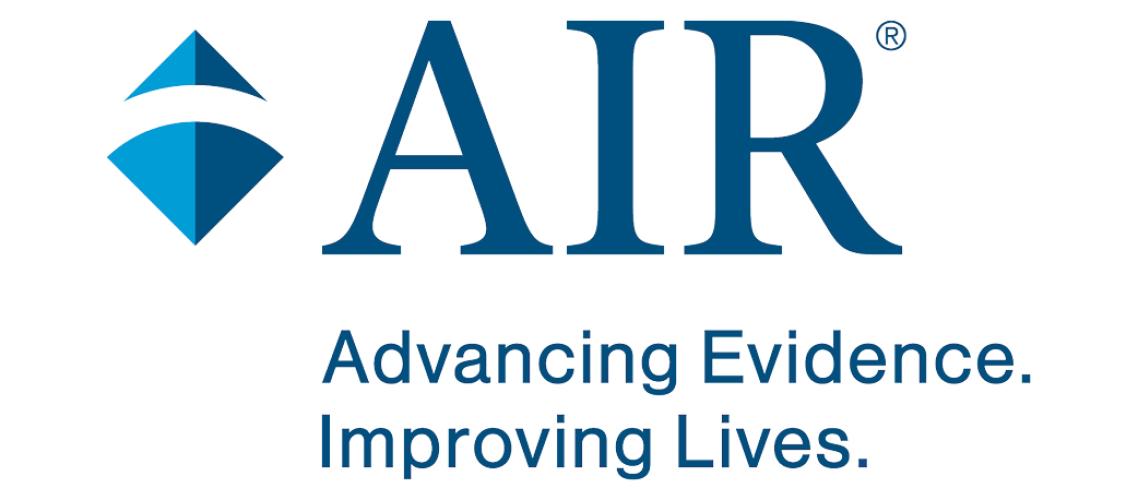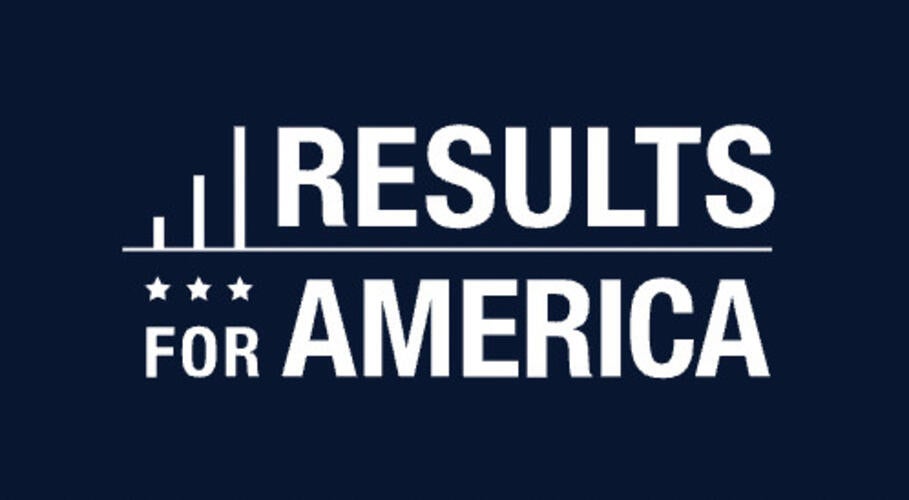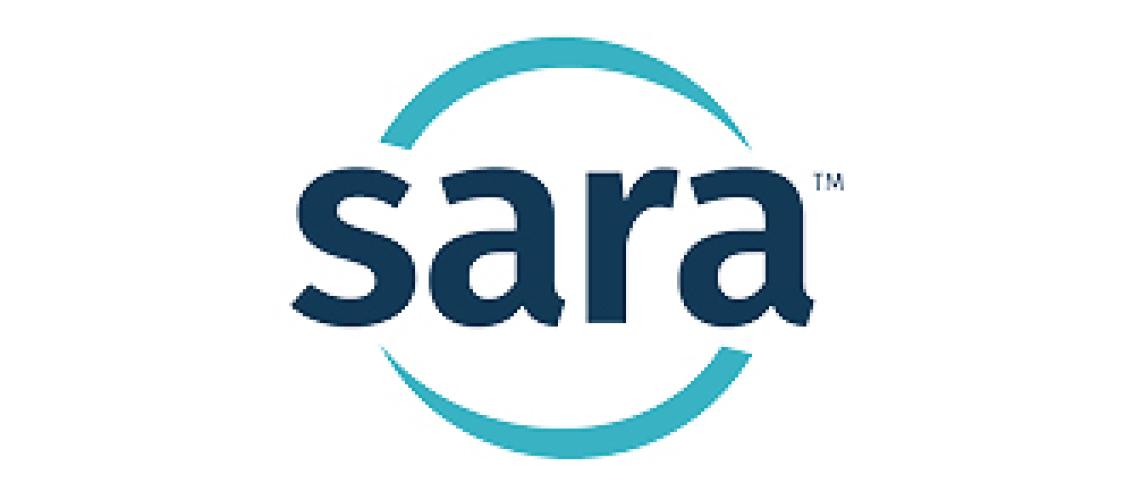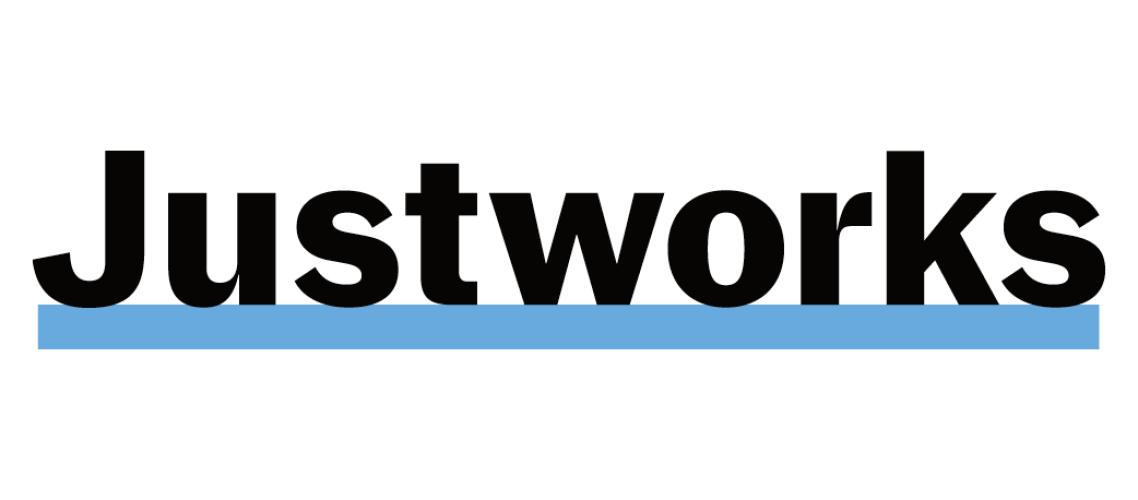
2024 Winter Policy Forum Headshots & Bios

Courtney Arbour, Director, Workforce Division, Texas Workforce Commission
Courtney Arbour is the Director of the Texas Workforce Commission’s Workforce Development Division where she oversees an integrated workforce development system that provides planning, oversight, policy guidance, technical assistance, and implementation of employment and training activities. With over $1 billion in funding administered directly or sub-granted, the activities are targeted to upskilling workers and supporting connections between workers and Texas employers. Local Workforce Development Boards, Workforce Solutions offices, Adult Education and Literacy providers, and Apprenticeship programs are primary partners in the work.

Bryce Barraza, Deputy Assistant Director, Arizona Department of Economic Security
Bryce currently serves as Deputy Assistant Director within the Arizona Department of Economic Security, Division of Employment and Rehabilitation Services. In his current role, Bryce directly supports the administration of the Unemployment Insurance Benefits and Tax programs. Bryce also shares responsibility for the strategic direction and administration of over 20 state and federal workforce programs in Arizona.
Bryce works to ensure the proper stewardship of programs and operations. In prior roles, Bryce served as Administrator of Management Services, coordinating the agency’s strategic deployment and business improvement functions. Bryce served as the Administrator of the Office of Internal Affairs, providing direct oversight and management of administrative and criminal investigations involving employee misconduct, and vendor and client fraud. Bryce also served as the agency’s Program Compliance Officer, coordinating audits and performance reviews in support of the agency’s business improvement and risk mitigation efforts. Bryce is committed to serving within an organization that works to support and better the community and first joined the Arizona Department of Economic Security in 2012.

Stephanie Beckhorn, Director, Employment & Training, Michigan Department of Labor and Economic Opportunity
For more than two decades, Stephanie Beckhorn has played an important and growing role in Michigan’s workforce and economic development.
Beckhorn has been lending her talents to Michigan’s workforce development efforts since 2001 when she joined the Bureau of Workforce Transformation. In 2013, she went on to serve as Director of Workforce Policy and Strategic Planning for the Michigan Workforce Development Agency and in 2019, at the beginning of Governor Whitmer’s first term, she served as the acting department director.
Since 2020, Beckhorn has served as the Michigan Department of Labor and Economic Opportunity’s Director of the Office of Employment and Training, providing leadership and guidance for the Bureau of Services for Blind Persons, Michigan Rehabilitation Services and Workforce Development.
She approaches projects in an inclusive manner and seeks solutions that are effective and replicable. Whatever challenges Michigan has faced, Beckhorn’s collaborative, data-driven approach has enabled Employment and Training to adjust swiftly to evolving economic demands.
Under her direction, Employment and Training administers key workforce programs and systems that equips both employers and workers with resources critical for their success, including vocational rehabilitation to support individuals with disabilities with gaining or retaining employment.
Overseeing a staff of nearly 900 and an annual budget that exceeds $600 million, Beckhorn has developed a well-earned reputation as one of the nation’s most innovative and effective workforce development leaders. According to the U.S. Department of Labor, Michigan ranks number-one nationally in reemploying workers who have lost their job. Michigan also leads all Midwestern states in adult employment and credential attainment, serving more participants than any other Midwest state.
Her emphasis on exploring innovative solutions has also led to Michigan being a national leader in the use of Registered Apprenticeship. Michigan ranks among the Top 10 states nationally in active and new Registered Apprentices, as well as program completers.
Beckhorn works directly with federal, state and local level partners to provide the connections, expertise and innovative solutions to drive continued business growth, build vibrant communities, and attract and retain key talent to fill Michigan’s vast pipeline of opportunities. This work is accomplished through federal and state programs focused on job preparedness, career-based education, worker training and employer assistance.
Beckhorn is a Certified Business Solutions Professional (CBSP) and earned a Bachelor of Science degree from Michigan State University.

Sujith Cherukumili, Senate Committee on Health, Education, Labor and Pensions

John Colbert, Co-Founder, Capitol Hill Partners
John Colbert is co-founder of Capitol Hill Partners, a consulting firm dedicated to assisting nonprofit and workforce related programs. John served in the Clinton Administration as Chief of Staff of the Department of Labor’s Employment and Training Administration (ETA).
Prior to becoming Chief of Staff, he was in legislative affairs for the Department handling a variety of ETA programs, including as a point person on the authorization and implementation of the Workforce Investment Act, Welfare to Work, and Older Americans Act, as well as a liaison to the Appropriations Committee.
An attorney in private practice before entering government, he has also served as Senior Counsel to both the National Center on Education and the Economy and Jobs for the Future, as well as an advisor to the former Deputy Prime Minister of Ireland, focusing on fostering the Irish peace process.
John is a graduate of Holy Cross College, was awarded the Friendly Sons of Saint Patrick full scholarship for a Master's degree in Political Science from the Catholic University of America, and also holds a law degree from Georgetown University.

Anne DeCesaro, Policy Director, Senate Committee on Health, Education, Labor and Pensions
Anne DeCesaro is currently the Education Policy Director on the Senate HELP Committee for Ranking Member Senator Bill Cassidy (R-LA) covering elementary, secondary, and post-secondary education, along with child care and child welfare. Before crossing the Capitol, Anne was the Republican Policy Director for the House Select Committee on Economic Disparity and Fairness in Growth, Staff Director for the Work and Welfare Subcommittee on the Ways and Means Committee, and professional staff for both the Ways and Means and Agriculture Committees. She served as Chief of Staff for Food, Nutrition, and Consumer Services at the US Department of Agriculture, under both Republican and Democratic leadership, leading more than 15 nutrition programs during the COVID-19 pandemic. Prior to the Hill, she served at the Office of Management and Budget and the Social Security Administration, working on programs for low-income individuals and families. She received her bachelor’s degree from Saint Mary’s College in Notre Dame, IN and her master’s degree from The John Hopkins University.

Will Durden, Director, Basic Education for Adults, State Board for Community and Technical Colleges
Will Durden is the Director of Basic Education for Adults (BEdA) with the Washington State Board for Community and Technical Colleges, overseeing all adult basic education, English language acquisition, high school completion, I-BEST programming, and Corrections Education programs. His passion is to help create greater social and economic justice for all Washington state residents by integrating adult education programming with college and career pathways that lead to fulfilling careers and further educational opportunities. He holds his Master of Arts from Western Washington University.

Scott Estrada, House Committee on Education and the Workforce
Scott Estrada is a professional staff member for the Committee on Education & the Workforce at the U.S. House of Representatives with a portfolio in workforce development. Specifically, he works on the Workforce Innovation and Opportunity Act (WIOA), the National Apprenticeship Act, the Carl D. Perkins Career and Technical Education Act, the National and Community Service Trust Act, and the H-2A and H-2B guest worker visa programs, among others. Previously, Estrada was a research associate for workforce development at the American Institutes for Research. Prior to that, he worked as a consultant for Maher & Maher where he provided technical assistance for the H-1B TechHire grant, WIOA implementation, and as a performance analyst on the Trade Adjustment Assistance Community College and Career Training (TAACCCT) grants.
Scott attended Santa Barbara City College, earned his bachelor’s degree in political science from the University of California, San Diego and his master’s degree in public policy from the University of Michigan.

Tonia D. Ferguson, Esq., Director of Legislative Affairs, Council of State Administrators of Vocational Rehabilitation (CSAVR)
Tonia D. Ferguson, Esq. is currently the Director of Legislative Affairs for the Council of State Administrators of Vocational Rehabilitation (CSAVR) comprised of the chief administrators of the public rehabilitation agencies serving individuals with disabilities in States, District of Columbia, and territories. Before joining CSAVR, she served as Chief of Staff to the Deputy Secretary at the Developmental Disabilities Administration under the Maryland Department of Health and has served as the Vice President of Public Policy and Advocacy prior at the Autism Society of America.
Ms. Ferguson brings over a decade of experience advocating for inclusion for individuals with disabilities and their families. Her expertise encompasses system change, building partnerships, and advocating and influencing policy at the local, state, and federal levels. She is mom to a young adult with Down syndrome and Autism who is fully included in his community living his best life.

Maya Goodwin, Senior Advisor for Workforce, Office of Energy Jobs, U.S. Department of Energy
Maya Goodwin serves as Senior Advisor for Workforce and Economic Opportunity Policy in the Office of Energy Jobs at the U.S. Department of Energy. In this role, Maya advances the adoption of workforce strategies across the Department to prioritize the creation of good quality jobs and workforce development activities that expand inclusive opportunity to benefit from good quality careers in the growing, changing energy sector.
An economic policy strategist and researcher, Maya has deep knowledge of workforce development, labor, and economic mobility policy. Maya previously served as Senior Manager for Workforce Policy and Research at the Markle Foundation, where she led a cross-sectoral initiative to advance state policy shifts to meaningfully prioritize job quality and inclusive access to good jobs within the context of state transportation and clean energy investments. Maya also worked to advance economic policy strategies through roles as a social impact and economic policy consultant with Sperling Economic Strategies, a fiscal policy researcher at the Pew Charitable Trusts, and as a workforce development researcher at the Aspen Institute’s Economic Opportunities Program.
Maya holds masters' degrees in international economic policy and international political economy from Sciences Po and the London School of Economics, respectively. She also holds a bachelor's degree in anthropology, with a focus on political and economic anthropology, from Princeton University.

Michael Harrington, NASWA 2023-2024 Board Chair and Commissioner, Vermont Department of Labor
Michael Harrington, was appointed to the role of deputy commissioner for the Vermont Department of Labor in 2017 by Governor Phil Scott. In 2019 Michael became interim commissioner and in 2020 he was permanently appointed commissioner of the Department. Prior to joining state service, Michael served as the Economic and Community Development Director for the Town of Bennington, VT. He has also held the role of chief student affairs officer for Paul Smith’s College, and director of client relations and training for the organizational development firm New Directions. Michael received his Bachelor’s and Master’s degrees from the State University of New York at Plattsburgh, and was named to Vermont’s 40 under 40 list in 2013. He currently serves as secretary for the NASWA Board and is the chair of the NASWA Equal Opportunity Committee.

Amy Hiltunen, PMP, Director, Workforce ITSC, NASWA
Amy has over 20 years of experience working in a technical and management capacity in both the private and public sector. Amy joined the National Association of State Workforce Agencies (NASWA) in 2018 as a Project Manager for the Workforce IT Support Center. In September 2022, she took over the Director position and has since been focused on building the Center’s team and expanding its offerings to support states in their data and technology efforts. Amy also serves as a staff lead for NASWA’s Technology Committee. Prior to joining NASWA, she worked for the State of Michigan for over twelve years in education and workforce development roles.
Amy values lifelong learning and knowledge sharing. In addition to an undergraduate business degree with majors in Logistics Management and Management Information Systems, Amy also holds a Master’s Degree in Library and Information Sciences and achieved her Project Management Professional Certification in 2020.

Marek Laco, House Committee on Education and the Workforce

Manoach Lamarre, Senior Policy Advisor, U.S. Department of Labor
Manny has vast experience at the intersection of workforce and education policy, research, and practice across federal, state, and local levels. He’s served as a Governor and now Presidential appointee leading on key workforce policies and strategies such as sector-based initiatives, registered apprenticeships, postsecondary pathways, industry engagement, and others. From 2015-2019, Manny led the implementation of Nevada’s workforce vision, with the passage of critical workforce legislation while serving as the Founding Executive Director of the Governor’s Office of Workforce Innovation. He also managed and served as the Governor’s Designee on the State’s 33-member Workforce Board and led the revamping of the State’s Registered Apprenticeship system that saw a 45% increase in apprentices and expansion into 14 new occupations. Manny has represented the U.S. in Geneva at the International Labor Conference setting international standards on apprenticeships.
Manny holds a B.A. in Political Science with honors from Wittenberg University, and a Master’s in Education Policy and Management from the Harvard Graduate School of Education. Manny began his career as a classroom teacher and has led technical assistance efforts at organizations such as WestEd and foundations. He has authored several reports, studied, and presented on workforce nationally and internationally.

Adam Leonard, Chief Analytics Officer and Director of the Division Information Innovation and Insights, Texas Workforce Commission
Adam Leonard is the Director of the Division of Information Innovation & Insight (I|3) for the Texas Workforce Commission (TWC). Adam envisioned and founded I|3 to help TWC leverage its most important untapped resource - its data – to help the agency and its partners better help employers, individuals, families, and communities achieve economic prosperity.
I|3 has four major areas of responsibility:
- Analytics Infrastructure Department – building out our modern data infrastructure and democratizing our data by creating intuitive online dashboard and analysis tools;
- Business Transformation – applies process improvement protocols to help program and policy-makers improve effectiveness and ideally transform entire business processes;
- Labor Market Information – gathers, analyzes, and disseminates key Labor Market and Labor Market Adjacent information help drive effective decision making; and
- Analytics & Evaluation – applies modern data science and traditional statistical research techniques to better understand our programs & system and how to improve them.
Since joining TWC in 2003, Adam has worked extensively with federal, state, and local partners to improve the use of data in both the Texas and national workforce systems. He continues to influence the national conversation about the use of data in the public sector serving on several NASWA committees and subcommittees relating to data, technology, and accountability as well as the Department of Labor’s State Data Workgroup, the National Skills Coalition’s Workforce Data National Advisory Panel, the U.S. Chamber of Commerce’s JEDx Initiative, the Education Department’s Rethink Performance workgroup, and various P20W+ Communities of Innovation. He is also helping guide development of the Southern Regional Data Collaborative and participating in the Midwest State Regional Data Collaborative governance meetings. Other key recent partnerships have been with the Coleridge Initiative and the Bill & Melinda Gates Foundation.
Adam earned a BA in Government from the University of Texas and a MPAff from the LBJ School of Public Affairs.

Matt Lyons, Senior Director, Policy & Practice, American Public Human Services Association
Matt Lyons is the Senior Director of Policy & Practice with the American Public Human Services Association (APHSA). In his role, Matt leads APHSA’s influence strategies, advancing policy change across federal human services systems and driving state and local practice and process improvement reforms.
Matt brings to APHSA extensive experience across an array of people-serving public systems, having led state- and local-level policy design and implementation within public benefits, housing, health, and workforce development programs. Matt brings his passion for tackling the finer points of policy details together with a clear North Star for equitable, community-centered systems to drive towards transformative
change in human services.
In his spare time, Matt spends his days being silly with his two kids, Samuel and Charlie, and his dog and work buddy, Pepper. Matt has a bachelor’s degree in government and politics and a master’s degree in public policy from the University of Maryland (go Terps!).

Ben Mays, Policy Director, NASWA
Ben Mays is a Policy Director at NASWA, a national organization representing workforce agencies in all fifty states, the District of Columbia, and U.S. territories.
Prior to joining NASWA, Ben Mays served as a Policy Advisor within the State of Rhode Island’s Executive Office of Commerce where he advised the state’s first-ever Commerce Secretary. Prior to his time in Rhode Island, Ben held several roles in the public, private, and nonprofit sectors, including as a Dukakis Fellow in the Office of Nevada Governor Brian Sandoval.
Ben received his undergraduate degree in History from Johns Hopkins University and his Master in Public Policy degree from Harvard University’s John F. Kennedy School of Government.

Dr. Robert McGough, Chief Data Officer, Arkansas Department of Information Systems
In over 23 years of Arkansas public service, Robert has supported a broad spectrum of Arkansas public sector entities in maximizing the value of data to serve the needs of residents, employers, and communities through enterprise shared services and braided funding strategies. Robert served as the technical liaison to the White House Office of Management and Budget (OMB) for the American Recovery and Reinvestment Act (ARRA) and was responsible for statewide tracking, Federal reporting, and transparency of over 3.7 billion dollars in federal grant funding to Arkansas from 2009 through 2014. He was named Chief Data Officer of the State of Arkansas in early 2023 and leads the Arkansas Data Office (ARData) in building and sustaining data management and analytics capacity for Arkansas. Robert is an active contributor to numerous efforts to modernize the national data infrastructure through interoperable standards, secure data trusts, and multi-state data collaboratives and serves on the WIOA Executive Committee, the Governor’s Workforce Cabinet, and the interim executive committee of the Southern Regional Data Collaborative.

Vicki Mockler, Director, Bureau of Employment & Workforce Opportunities, New York State Department of Labor
Vicki Mockler serves as the Director of the Bureau of Employment and Workforce Opportunities in the New York State Department of Labor. In this capacity, Vicki oversees Career Center and Business Engagement services provided by the 95 career centers throughout the state. Vicki also heads the Bureau’s Central Office Units that include Customer Engagement, Program Implementation and Performance, Tax Credits, and Veterans Services. In her current role, Vicki manages operations, program implementation, and career services throughout the state. She works in conjunction with multiple stakeholders including but not limited to Local Workforce Development Board Directors, vendors, training providers, and multiple Agency leads to ensure program goals are met and both job seekers and businesses have modernized tools available, leading to positive outcomes. Vicki serves on a number of high-level committees including the multi-state OSOS Steering Committee and New York’s WIOA Interagency Team.
PDAS Brent Parton, Principal Deputy Assistant Secretary, Employment and Training Administration, USDOL
Brent Parton is the Principal Deputy Assistant Secretary of the U.S. Department of Labor’s Employment and Training Administration (ETA). In that role he helps oversee many of the Department’s workforce development, employment, and unemployment insurance programs, and works to ensure those programs’ investments advance the Biden-Harris Administration’s workforce and equity priorities.
An expert on workforce, labor and career, and technical education policies, before joining DOL, Brent was the deputy director of the Center on Education & Labor at New America, a policy and research institution based in Washington, D.C. At New America, Brent led national research and technical assistance efforts and worked closely with state and local leaders, as well as with philanthropy, business, and labor to develop and implement strategies and investments that deliver more equitable labor market and education outcomes for workers, students, and communities. His 2017 research on youth apprenticeship led to the establishment of the Partnership to Advance Youth Apprenticeship, a national initiative to support states and cities across the U.S. to connect high school students to apprenticeship opportunities.
Prior to New America, Brent served as a senior policy advisor at the U.S. Department of Labor during the Obama Administration, and held roles at the National Governors Association, and in the education sector of the World Bank. Brent has a bachelor’s degree in history and a master’s degree in international education policy, both from Vanderbilt University; he is from Santa Rosa, California.

Scott Powell, Chief Data Officer, State of Michigan Department of Technology, Management, and Budget

Scott B. Sanders, President & CEO, NASWA
Scott B. Sanders has been the President and CEO of the National Association of State Workforce Agencies (NASWA) since October 2014. He manages the association of state administrators who handle workforce training, unemployment insurance, employment services, employment statistics, labor market information programs and veteran reemployment in all 50 states, the District of Columbia and US Territories. The association provides advocacy at the national level for a more effective workforce system, and engages with the US Department of Labor, employers and the public.
He previously served as Commissioner of the Indiana Department of Workforce Development (DWD) and was a member of the cabinet of Governor Michael Pence and Governor Mitchell Daniels. DWD managed and implemented training and employment programs for Hoosiers, collaborated on regional economic growth initiatives for Indiana, coordinated the adult education system, and oversaw the unemployment insurance system. He was also involved in the launching of JAG in Indiana in 2007.
Scott served on American Workforce Policy Advisory Board from February 2019-January 2021, and also serves on the boards of the LMI Institute (Chair 2020-2021) and the UWC Foundation.
Scott also has over 20 years of private sector experience prior to his role at DWD.
Scott earned his master’s degree in business administration from Northwestern University’s J.L. Kellogg Graduate School of Management and his bachelor’s degree from Miami University.

Jennifer Sereno, Assistant Deputy Secretary, Wisconsin Department of Workforce Development
DWD Assistant Deputy Secretary Jennifer Sereno joined the agency in July 2021 as communications director. She previously served as public affairs program manager at the Wisconsin Housing and Economic Development Authority and strategic communications manager for the Wisconsin Department of Natural Resources. She also brings two decades of experience in the news business, including roles as business editor and assignment editor at the Wisconsin State Journal.
Jennifer holds undergraduate degrees in political science and journalism as well as a master's degree in journalism from UW–Madison. Her work has focused on advancing equity, opportunity, and sustainability. She welcomes opportunities to learn from customers, listen to stakeholders, and collaborate on solutions.

Paige Shevlin, Strategic Advisor for Infrastructure Workforce Development, U.S. Department of Transportation
Paige Shevlin is the Strategic Advisor for Infrastructure Workforce Development at the U.S. Department of Transportation. In that role, she is responsible for implementing the Bipartisan Infrastructure Law in a way that promotes high-quality jobs and greater diversity in the infrastructure workforce. Paige has extensive experience in federal and local government with a focus on job training, higher education, and social insurance programs. Paige was the Economic Development Policy Advisor to the King County Executive, in Washington State. Paige was responsible for working with regional organizations to create economic and workforce development strategies for the county. A principal focus of her work was reallocating workforce funding to reduce racial disparities in workforce services and outcomes. Prior to her time in local government, Paige served in the Obama Administration as Special Assistant to the President for Economic Policy at the White House National Economic Council. She was responsible for leading the development of labor market policies including the Vice-President’s Job-Driven Training initiative and policy decisions relating to regulations of the Workforce Innovation and Opportunity Act. Paige also held appointed positions at the Council of Economic Advisers and the Department of Labor. Prior to joining the Obama Administration, she was the Assistant Policy Director at the Hamilton Project at the Brookings Institution and an Assistant Analyst at the Congressional Budget Office. Paige received a BA in Economics from Wellesley College and an MA in Public Affairs from Princeton University.

Tara M. Sinclair, Deputy Assistant Secretary for Macroeconomics, Office of Economic Policy, U.S. Department of Treasury
Tara M. Sinclair is Deputy Assistant Secretary for Macroeconomics in the Office of Economic Policy at the Department of Treasury. Sinclair is on detail from her position as a professor of economics and international affairs at the George Washington University and director of their H.O. Stekler Research Program on Forecasting. Prior to joining the Treasury Department, Sinclair was a senior fellow and former chief economist at job search site Indeed. Sinclair uses her research to connect economic principles with real-world concerns, developing data sources and tools that policymakers can use in their decision-making. She is a sought-after public speaker who regularly consults with public officials, business leaders, and the press on issues related to business cycles, labor market dynamics, forecasting, big data, and macroeconomic policy. Dr. Sinclair earned her PhD in economics from Washington University in St. Louis, Missouri in 2005.

Christina Whitfield, Senior Vice-President & Chief of Staff, State Higher Education Executive Officers Association (SHEEO)
Christina Whitfield joined SHEEO in October 2015. She serves as senior vice president and chief of staff, working out of SHEEO’s Washington, D.C. office. Dr. Whitfield leads SHEEO’s efforts to analyze the capacity of state postsecondary data systems, promote their effective use, and provide professional development and technical assistance to researchers, policy analysts, and data practitioners. Dr. Whitfield’s research interests include student employment outcomes, aligning educational programs with workforce needs, transfer, and community college success. As chief of staff, Dr. Whitfield contributes to SHEEO’s strategic direction and is responsible for staff development and for developing SHEEO’s internal policies and procedures. Dr. Whitfield is a member of the National Center for Education Statistics’ National Postsecondary Education Cooperative. Prior to joining SHEEO, Dr. Whitfield was vice chancellor for research and policy analysis at the Kentucky Community and Technical College System (KCTCS). At KCTCS, she led policy analysis, strategic planning, and institutional research for Kentucky’s 16 public two-year institutions. Dr. Whitfield has served on a number of national advisory boards and visiting committees, including for the Aspen Institute, the Association for Institutional Research, the American Association of Community Colleges, Workforce Data Quality Campaign, and the Southern Association of Colleges and Schools Commission on Colleges. Before joining KCTCS, Dr. Whitfield served as senior associate for research and associate for academic affairs at the Kentucky Council on Postsecondary Education. Dr. Whitfield earned a Ph.D. and an M.A. in history from the University of Minnesota and a bachelor’s degree in history from the University of Kentucky.






































